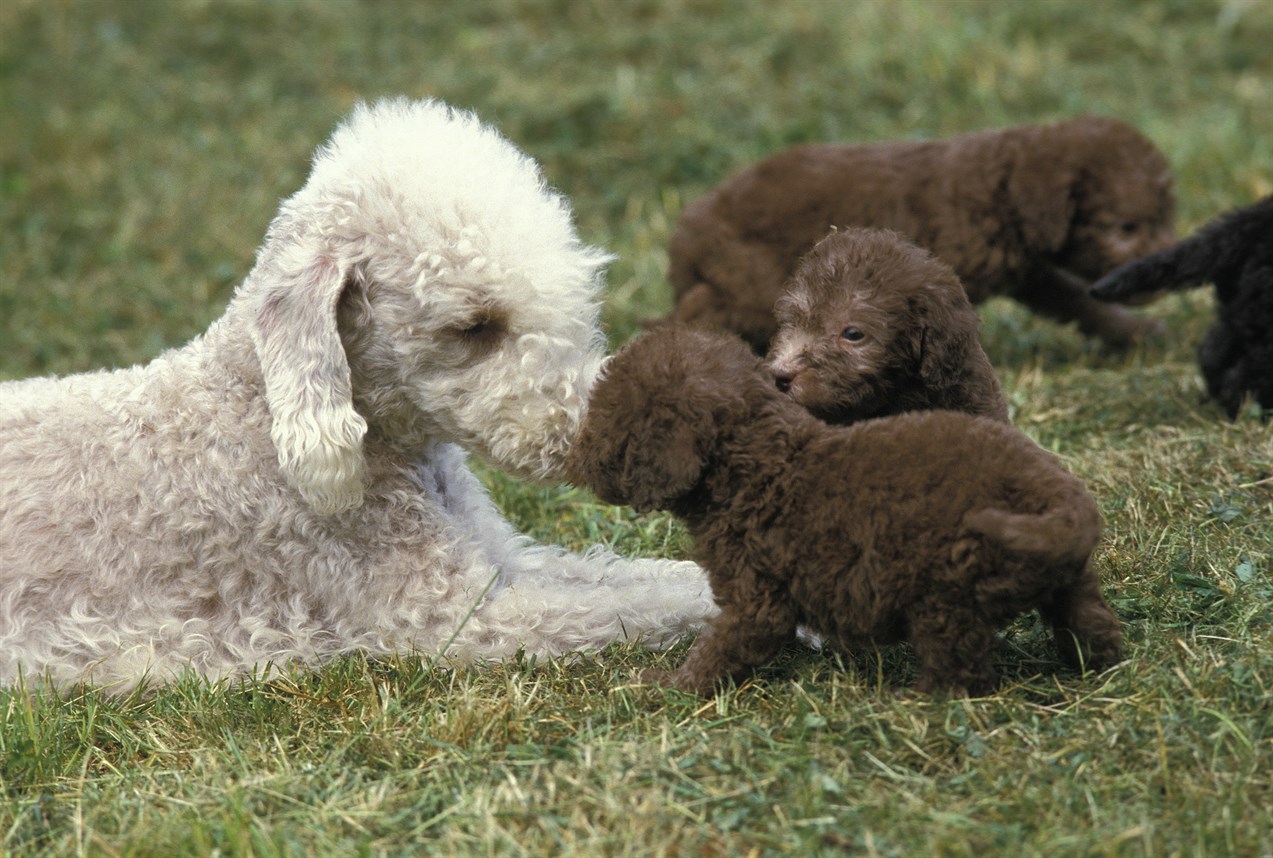Sleeping Requirements and Habits of Bedlington Terriers

Like all dogs, Bedlington Terriers have specific sleeping requirements and habits that contribute to their overall health and well-being. Understanding their sleep needs and patterns can help you ensure they get the rest they need to stay happy and healthy.
Sleeping Requirements
Bedlington Terriers, like most dogs, require a significant amount of sleep to function properly. The exact amount of sleep they need can vary depending on their age, activity level, and individual preferences. Here are some general guidelines:
- Puppies: Bedlington Terrier puppies, like all young dogs, need more sleep than adults. They may sleep up to 18-20 hours a day, including frequent naps. This is essential for their growth and development.
- Adults: Adult Bedlington Terriers typically need around 12-14 hours of sleep per day. This sleep can be spread out throughout the day and night. Most dogs will adapt their sleep schedule to match their owner's routine.
- Seniors: As Bedlington Terriers age, they may require slightly more sleep, up to 16 hours a day. Older dogs tend to sleep more and may also experience more interruptions in their sleep.
Sleeping Habits
Bedlington Terriers are known for their love of comfort, and you'll often find them seeking out cosy spots for a good nap. Here are some common sleeping habits and preferences of Bedlington Terriers:
- Curling Up: These dogs often curl up into a ball when they sleep, much like a cat. This position helps them conserve body heat and feels secure.
- Favourite Spots: Bedlington Terriers may have favourite sleeping spots in the house. These spots are often soft and comfortable, such as a plush bed or a sunny patch of carpet.
- Nighttime Sleeping: While they can adapt to their owner's sleep schedule, Bedlington Terriers are generally flexible sleepers. They may sleep through the night but also wake up for short periods of activity before returning to sleep.
- Light Sleepers: Like many dogs, Bedlington Terriers can be light sleepers. They are alert to sounds and movements in their environment, which makes them suitable watchdogs.
Creating a Comfortable Sleep Environment
To ensure your Bedlington Terrier gets quality rest, consider creating a comfortable sleep environment for them. This includes providing a soft, supportive bed or cushion in a quiet area of the house. Keep their sleeping area clean and free from draughts. Additionally, maintaining a consistent daily routine, including regular feeding and exercise times, can help regulate their sleep patterns.
Signs of Sleep Disturbance
It's important to be aware of signs that your Bedlington Terrier may be experiencing sleep disturbances or discomfort. If they are excessively restless, have trouble settling down, or show signs of pain or discomfort during sleep, consult with your veterinarian to rule out any underlying health issues.
In conclusion, Bedlington Terriers have specific sleep requirements and habits that are important for their physical and mental well-being. Providing a comfortable sleep environment and being attentive to their sleep patterns can help ensure they get the rest they need to remain healthy and happy companions in your home.
Bedlington Terrier puppies for sale
- Find Bedlington Terrier puppies for sale in ACT
- Find Bedlington Terrier puppies for sale in NSW
- Find Bedlington Terrier puppies for sale in NT
- Find Bedlington Terrier puppies for sale in QLD
- Find Bedlington Terrier puppies for sale in SA
- Find Bedlington Terrier puppies for sale in TAS
- Find Bedlington Terrier puppies for sale in VIC
- Find Bedlington Terrier puppies for sale in WA